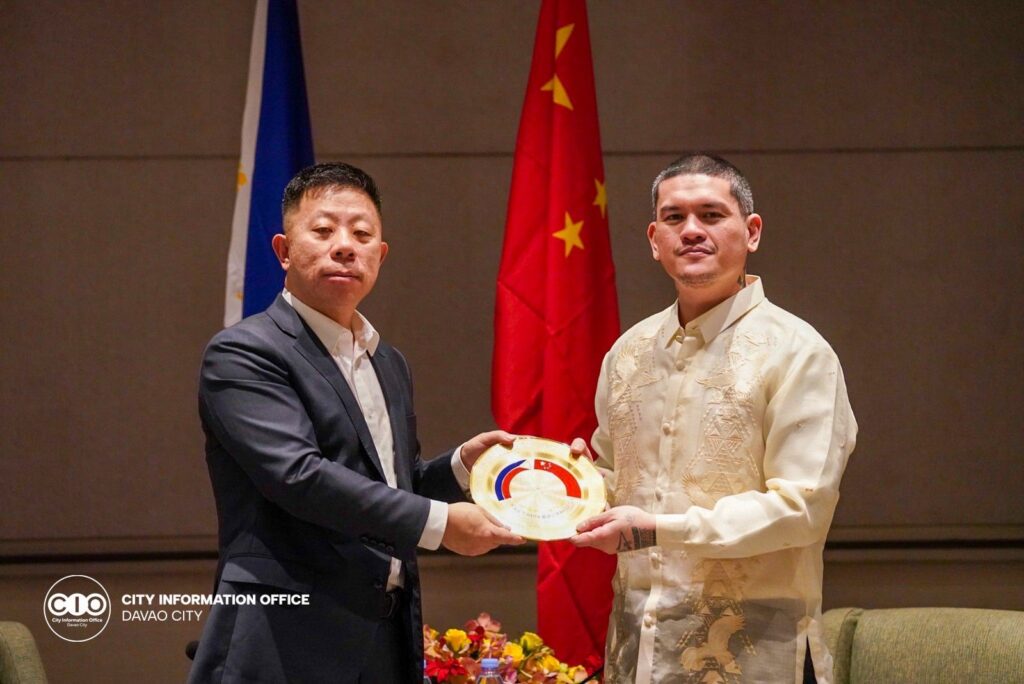Farmers and the indigenous peoples (IP) of the Cordillera are up in arms against rampant landgrabbing and the plunder of natural resources in the region by corporate interests, both local and foreign, the Alyansa Dagiti Pesante Ti Taeng Kordilyera (APIT TAKO), the Kilusang Magbubukid’s regional chapter in the Cordillera Administrative Region (CAR), disclosed on Oct. 14, 2024.
The Cordillera is home to vast ancestral lands and self-sustaining agricultural systems and has been threatened by large-scale mining, energy, and infrastructure projects that imperil the people’s livelihoods, ecosystems, and cultural heritage, KMP chairperson Danilo Ramos, also a Makabayan senatorial candidate, argued. “Farmers and indigenous peoples in the Cordillera are intensifying their fight against landgrabbing and resource exploitation by corporations. Farmers are resisting this feudal and semi-feudal system, defending their lands from corporate encroachment and neoliberal policies,” he added.
Farmers and IP groups are organizing to defend their territories against corporate intrusion. Neoliberal policies and market manipulation of prices of agricultural inputs and produce have left these communities vulnerable, with land-grabbing exacerbating their struggle to remain self-reliant. Corporations are targeting Cordillera’s resources under the guise of developing “renewable energy.” Mining, hydropower, geothermal, and wind projects by companies like San Miguel Corp., Nickel Asia and the Aboitiz Group are being resisted due to their inimical environmental impact and the displacement of IP communities.
British-owned metals exploration companies are targeting towns in Kalinga, Abra and Nueva Vizcaya while the Australian company Celsius Resources operates near the Batong Buhay mine in Kalinga. Nickel Asia, in partnership with Japanese corporations, plans to exploit areas in Benguet, Ilocos Sur and Mountain Province. There are 108 hydropower projects planned in the region that would submerge thousands of hectares of farmland and displace the IP from their homes. Moreover, the proposed geothermal fields spanning 40,000 hectares will devastate ecosystems across Kalinga, Mountain Province, Benguet and Ifugao. At the same time, wind power projects seek to install 41 turbines across the North Central Cordillera Key Biodiversity Area, disrupting agroecosystems and threatening wildlife.
Ramos urged the people of the Cordillera to resist corporate projects, many of them approved by the Private Sector Advisory Council (PSAC), the unelected big bourgeois architect of the economic and financial policies of the Marcos Jr. regime headed by Sabin Aboitiz, and Deck Go, the equally unaccountable adviser of Marcos Jr. who even supervises the so-called economic cluster. Go allowed a Chinese steel company to operate in Mindanao, the way the unlamented Duterte regime permitted POGO operations that eventually engaged in the drug trade. It is not known if the sovereign wealth fund (SWF) known as Maharlika Investment Corp. (MIC) would invest in these dubious “development projects” as it has hundreds of billions of pesos to spare, courtesy of Juan de la Cruz.
Where foreign investments and local compradors go, so go the military and police, the National Task Force to End Local Communist Armed Conflict (NTF-ELCAC) and the so-called investment defense force that reinforced security for the Consunjis, widely held responsible for the Lake Sebu Massacre many years ago as the family ventured into coffee production, a sideline for the more lucrative coal quarrying and mining operations. Already, Cordillera has seen military operations, extrajudicial killings (EJKs), forced disappearances and arrests as foreign companies and big local corporations take over swathes of the region. Despite this, farmers and indigenous groups remain steadfast, calling for broader solidarity in their fight for land and justice, Ramos, KMP and APIT TAKO said.
“This October Peasant and Indigenous People’s month, the farmers and indigenous peoples of Cordillera remain undeterred in their defense of ancestral lands, organizing in their region and calling on broader sectors to join the resistance against corporate exploitation and state violence,” they stressed. The continuing plunder of the Cordillera brings to mind what the Americans did to the region when they took over mining, quarrying and logging concessions in the Cordillera. The avarice of the imperialist Americans prompted the Spanish-language newspaper El Renacimiento to write the editorial “Aves de Rapiña” (Birds of Prey) on Oct. 30, 1908 for exploring Benguet, Mindoro and Mindanao in search of minerals. Penned by associate editor Fidel Reyes, the editorial slammed the unnamed American colonial official for exploring the country to enrich himself. Feeling he was alluded to, then Interior Secretary Dean C. Worcester sued El Renacimiento publisher Martin Ocampo, editor Teodoro M. Kalaw and Reyes. Worcester won and the defendants were assessed a fine and ordered imprisoned.
Today, the same rapine is being repeated. The IP communities in the Cordillera are being denied their protection under the Indigenous People Rights Act (IPRA). At the same time, the farmers and IP of Palawan are also denied their control of the 40,000-hectare Yulo King Ranch in Busuanga and Coron that Marcos Sr. graciously gave to the Yulo family and Peter Sabido as pasture reserve in 1975 and the 10,821-hectare Bugsuk island that Marcos Sr. gifted to Danding Cojuangco in 1974. Cojuangco even established a pearl farm on the island under Jewelmer. The island, which the farmers and IP planted to fruit trees and crops, was given a notice of coverage (NOC) under the agrarian reform program but this was scrapped as the Department of Agrarian Reform (DAR) suddenly declared the area unsuitable for agriculture in 2023, thus pleasing San Miguel Corp. (SMC) and Cojuangco’s wunderkind Ramon Ang, who is now busy with a dubious eco-tourism venture on an island originally developed as a hybrid coconut hybrid seedling farm.




